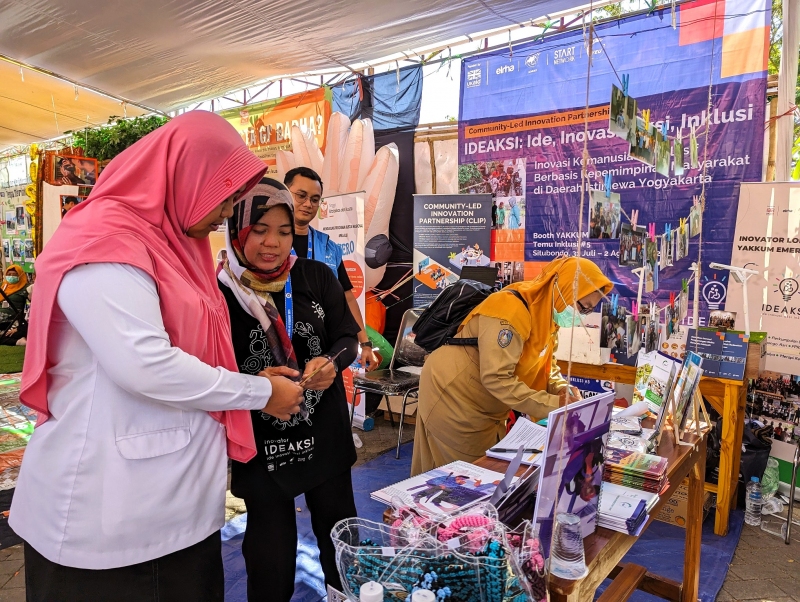
Persons with disabilities in Indonesia have been more involved in society. Increased support by the government can also be seen from the enactment of a law on persons with disabilities in 2016 and a number of related regulations. A biennial event named the Inclusion Gathering (Temu Inklusi) uses this momentum to continuously increase the participation of persons with disabilities up to the village level.
This year’s Inclusion Gathering is the fifth since its inception in 2014. Previously, the Gathering took place in Sleman, Gunungkidul, and Kulon Progo (all of which are within the Special Region of Yogyakarta), as well as online during the COVID-19 pandemic.
As an opportunity to consolidate movements related to persons with disabilities, this year’s Gathering was held in an Islamic education institution (pesantren), at Salafiyah Syafi’iyah Sukorejo in Situbondo District, East Java, from 31 July to 2 August 2023. While the previous events were all hosted by villages, this fifth event was organized in a huge 115-year-old faith-based education compound with more than 20,000 santri (Islamic institution’s students). “For the first time ever, this national inclusion gathering takes place at a pesantren,” said the District Head of Situbondo, Mr. Karna Suswandi, in his welcome speech.
Over 600 participants swarmed the area, exceeding the initial 420 attendees planned by the organizer. This year’s Inclusion Gathering can be regarded as the largest of its kind.
Collaboration Across Institutions
Ever since the Inclusion Gathering began, various advocacy groups and civil society organizations, including SIGAB (Center for Inclusion and Diffability Advocacy Movement) and YAKKUM (The Christian Foundation for Public Health) have consistently strengthened cross-agency cooperation.
YAKKUM fully participated in this biennial agenda which is now entering its fifth time, namely Temu Inklusi #5. Consistent in pushing for an inclusive Indonesia to be achieved in 2030, this time's theme carries the message that persons with disabilities are "Empowered in Diversity Towards Inclusive Indonesia 2030."
YAKKUM fully supports the aforementioned message with significant contributions from various YAKKUM units, including the YAKKUM Emergency Unit (YEU), YAKKUM Rehabilitation Center (PRY), a number of YAKKUM hospitals and clinics, along with their partners in the community.

YEU delegates at the 5th Inclusion Gathering
Bringing more than 175 participants to this national event, YAKKUM, including YEU, shows its commitment to bringing inclusion in all aspects of community life. Whether in humanitarian responses, disaster mitigation, health, or livelihoods and welfare, YAKKUM units prove through the Gathering that all units continue to work to create a society where no one is left behind.
Inclusion in Disaster Management and Climate Change Adaptation
At the Fifth Inclusion Gathering, YEU specifically presented its inclusive innovation initiatives, known as IDEAKSI (Idea, Innovation, Action, Inclusion). Through this program, community groups in the Special Region of Yogyakarta (DIY) initiate and develop their own creative ideas to prepare themselves for disasters.
These innovations were presented by the partners present in the YEU group, namely the People with Disabilities Task Force for Disaster Response (DIFAGANA DIY), the Gunungkidul Disaster Risk Reduction Forum (FPRB GK), and the CIQAL Foundation. The presence of the IDEAKSI innovator representatives inspired visitors that disaster management (DM) and climate change adaptation (CCA) can also be inclusive.

Visitors at YEU exhibition booth
At the exhibition booth, various learning materials, innovation mock-ups, and an introduction to inclusive DM-CCA were presented. Apart from that, the innovator partners also offered a variety of local crafts and snacks made by persons with disabilities in Yogyakarta. This exhibition was an opportunity for innovators to network and disseminate good practices.
Hundreds of visitors to the exhibition area at the Gathering had the opportunity to visit the YEU booth, ranging from elderly people, government officials to elementary school children. Many of them were interested in listening to the innovations presented, and learning sign language with DIFAGANA DIY. One of the visitors, Mrs. Fatimah Asri from the National Commission on Disabilities (KND), conveyed her impression during her visit, "[We] are grateful and appreciate the ideas and innovations of our YEU friends."
Together with CBM Global and the Indonesian Association of Women with Disabilities (HWDI) in Cianjur, YEU held a discussion session about the meaningful participation of the most at-risk groups in DM and CCA. Representing the IDEAKSI innovators, Mrs. Tutik Purwaningsih from the CIQAL Foundation shared lessons learned from involving persons with disabilities and other groups at risk in IDEAKSI innovations.

Mrs. Tutik shares IDEAKSI good practices with discussion participants
"Persons with disabilities are more at high risk of the impact of disasters, [thus] they are prioritized in disaster risk reduction [for] building a resilient and inclusive society, through innovation and community-led efforts," said Ms. Tutik to around 40 audience members who attended.
In the Appreciative Inquiry (AI) session, YEU specifically shared a video through IDEAKSI's best practices. YEU also reiterated that no one should be left behind, even in a disaster situation.
In response to the YEU presentation, one of the more than 80 AI participants from Bapelitbang Rote Ndao in East Nusa Tenggara (NTT), Sherwin Ufi, expressed his desire to learn, "... from the host family model and website [proposed in IDEAKSI] which is certainly very much needed in the context of NTT, especially in Rote, from the experience of major cyclones every 10 years, the most recent one from the [2021] Seroja Cyclone disaster.”

Lorenzo Fellycyano of YEU shares about IDEAKSI at AI Session
Recommendations for the President Regarding Inclusion in DM and CCA
The Inclusion Gathering series was opened by the Governor of East Java, Mrs. Khofifah Indar Parawansa, on Tuesday (1/8) and was attended by hundreds of participants from 17 provinces and 54 districts/cities throughout Indonesia.
Also present at the opening were representatives from the Coordinating Ministry for Human Development and Cultural Affairs, Ministry of Health, Ministry of Law and Human Rights, Ministry of Villages, the National Development Planning Agency, KND, National Human Rights Commission, National Commission on Violence Against Women, as well as East Java provincial agency heads, the Situbondo District Head and the Situbondo Regional Leadership Coordination Forum.
To the stakeholders who were present, recommendations were submitted to the president's representatives so that they would become concrete actions, as the message of the Salafiyah Syafi'iyah Head, Mr. Ahmad Azaim Ibrahimy, "Please make real follow-ups."
In her remarks, Governor Khofifah said that, "Of course, the recommendations that have been given, regarding technical matters must be followed up." She symbolically handed over 31 wheelchairs from the Provincial Government of East Java, accompanied by the Situbondo District Head.
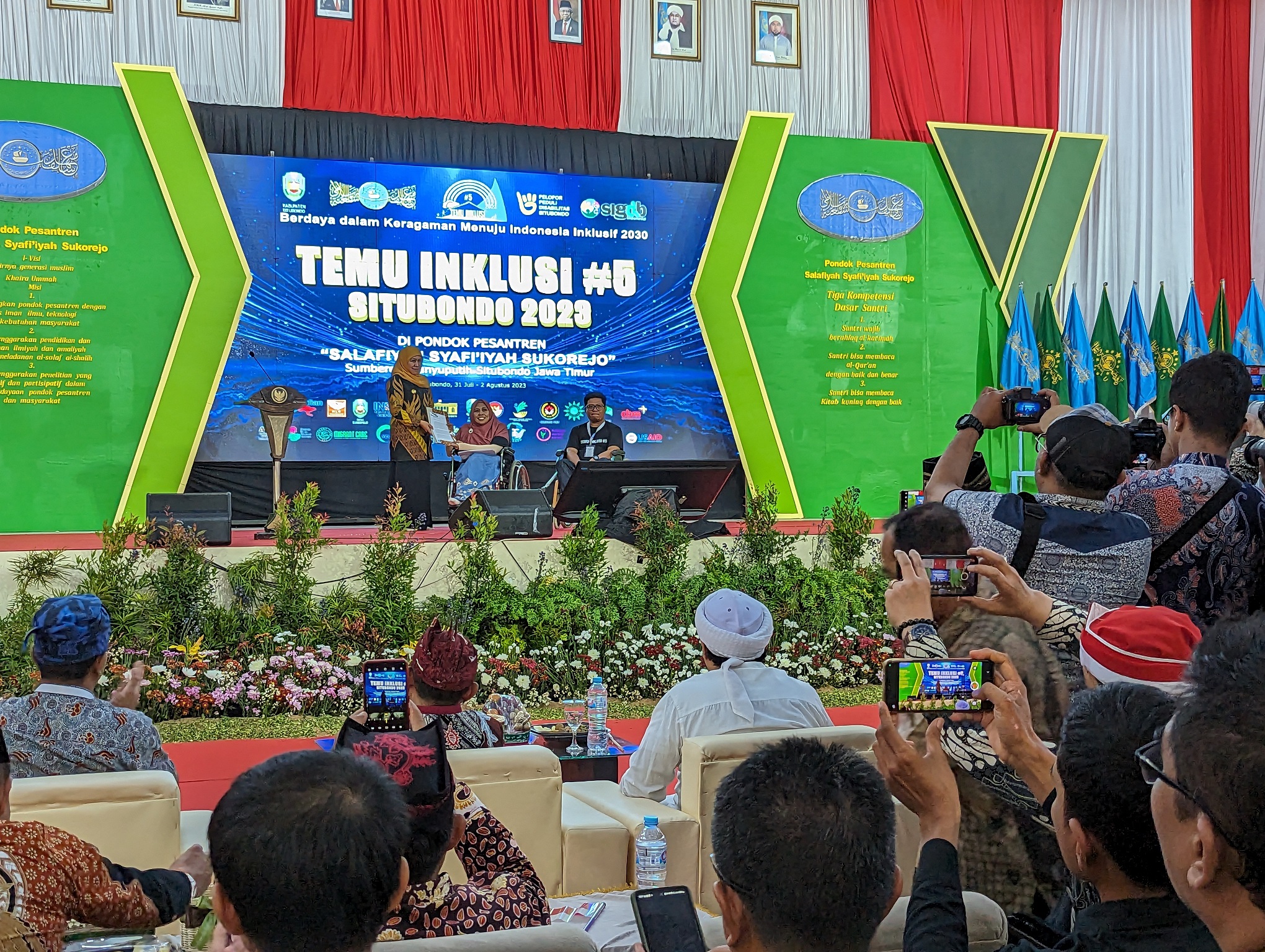
East Java Governor symbolically gives wheelchairs
From the previous Gatherings, concrete steps have been taken to promote the inclusive village model, as a representation of the smallest government system, that has been replicated by more than 250 villages in Indonesia. The government has also shown its commitment to the inclusion of persons with disabilities by passing 7 out of 8 government regulations mandated by the Law on Persons with Disabilities, as well as the formation of the KND. As a result, public facilities have become more accessible. More than 5,000 persons with disabilities have also been recruited into the civil service from 2017 until now.
However, the expansion of implementation, including in the aspects of DM and CCA, still needs to be improved. For this reason, in the Fifth Inclusion Gathering, the Sukorejo Recommendation was formulated, which will be submitted to the President of the Republic of Indonesia. This recommendation was also read in sign language by one of the IDEAKSI innovators, Mrs. Dwi Rahayu from DIFAGANA DIY.
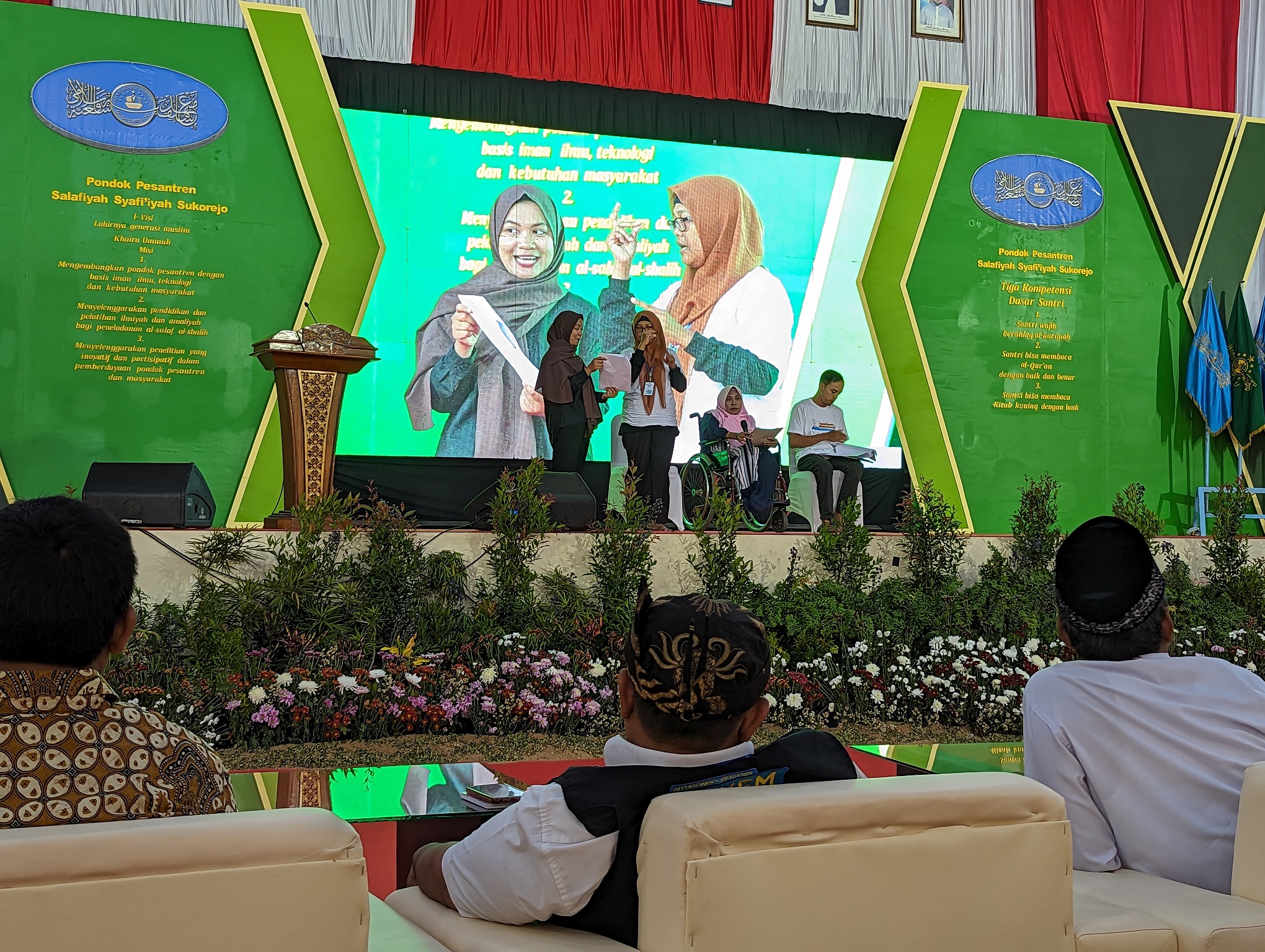
Mrs. Dwi of DIFAGANA DIY reads recommendation using sign language
Particularly with regard to DM and CCA, the Inclusion Gathering recommended that the President instruct the National Disaster Management Agency (BNPB) and related parties to make measurable efforts to ensure the protection of persons with disabilities in disaster situations, humanitarian emergencies, conditions due to the impacts of climate change, disaster risk reduction, as well as recovery, rehabilitation and reconstruction efforts. These include adjusting existing policies, as well as cross-sector pentahelix coordination and collaboration.
Written by: Lorenzo Fellycyano
-----
Full Text of the Recommendation
SUKOREJO RECOMMENDATIONS
THE FIFTH INCLUSION GATHERING, 31 JULY TO 2 AUGUST 2023
Your Excellency,
The President of the Republic of Indonesia, Mr. Ir. H. Joko Widodo
The Inclusion Gathering is a biennial forum where persons with disabilities organizations and activists, academics, government, civil society, and other parties meet to discuss challenges and share good practices and ideas in order to contribute to realizing disability inclusion in Indonesia. The Gathering was started in 2014 and has been held five times. Among the results is the Inclusive Village model as a representation of the smallest governance ecosystem, which to date has been replicated by more than 250 villages in Indonesia. By using the approaches "from practice to policy" and "starting from the community", we believe we can make a difference, as evidenced by the Inclusive Village model which is able to bring basic services closer to persons with disabilities and other groups at-risk in a more equitable manner.
We fully appreciate Mr. President's series of policies for Persons with Disabilities. Law Number 8 of 2016 concerning Persons with Disabilities, the ratification of 7 of 8 Government Regulations which is the mandate of the Law on Persons with Disabilities, and the formation of the National Commission on Disabilities (KND) are among them. Some have shown results, such as the increasing number of public facilities that are more accessible, as well as the increasing number of persons with disabilities who have been recruited as civil servants, which reached 5,923 people from 2017 until now.
Nevertheless, the slow harmonization and implementation of policies at various levels of government, the lack of transparency and accountability, inaccurate data, the lack of participation of persons with disabilities, and the lack of understanding to prioritize persons with disabilities as part of the mainstream of national development are major challenges. The Regional Action Plan for Persons with Disabilities (RADPD), which should have been formed in all provinces after the regulations were enacted in 2021, has so far only been formed in one province, and even then there is minimal participation of persons with disabilities.
Mr. President's commitment to the inclusion of persons with disabilities has been stated through the Suharso Charter (2014). Quoting the President's speech in December 2021, "The government has developed many policies related to disability, and now it is important to ensure their implementation." For this reason, the Fifth Inclusion Gathering made the following recommendations to the President:
- To include the mainstreaming of inclusion of persons with disabilities in all sectors as part of the 2025–2045 National Long-Term Development Plan, the elaboration of which implementation is translated through the National and Regional Action Plans for Persons with Disabilities.
- To order the Ministry of Home Affairs to encourage the formation of regional regulations and Regional Action Plans for Persons with Disabilities in each Province and District/City, through a participatory drafting process.
- To facilitate legal protection and access to justice for Persons with Disabilities, including affirmation of access to legal aid financing, assistance budgets, and adequate accommodation for Persons with Disabilities before the law.
- To instruct the Ministry of Women's Empowerment and Child Protection (PPPA) to build a protection system for women and children with disabilities with multiple vulnerabilities, as well as accelerate the drafting of Government Regulations that are pro-persons with disabilities.
- To instruct the development of the National Capital with universal design concepts and integrated accessibility to become a model for the development of infrastructure accessibility in various other regions in Indonesia.
- To emphasize the rules to accelerate the realization of Inclusive Villages, Districts, and Cities up to the most remote areas, including the implementation of basic services and public facilities that are easily accessible to Persons with Disabilities.
- To instruct Statistics Indonesia (BPS) and related Ministries to accelerate the formation of data on persons with disabilities in one system in One Data Indonesia which will facilitate planning in all sectors in fulfilling the rights of persons with disabilities.
- To issue affirmative social protection policies for Persons with Disabilities which include: 1) guarantees of financing and admission and facilitation of education including through the establishment of service units for persons with disabilities in the education sector, 2) employment guarantees including access to training, affirmation pathways, and the establishment of service units for persons with disabilities in the employment sector, and 3) expansion of guarantees for health financing for persons with disabilities and expansion of guarantee benefits for assistive devices and inclusive health services. The implementation of this guarantee is so that the outreach is evenly distributed to those living in rehabilitation institutions.
- So that Mr. President, through religious organizations, leaders, and movements, mobilizes educational efforts on acceptance, and equality, eliminating the stigma of disability, and strengthening the participation of persons with disabilities in socio-religious activities, including access to places of worship of various religions.
- To instruct the National Disaster Management Agency (BNPB) and related parties to make measurable efforts to ensure the protection of persons with disabilities in disaster situations, humanitarian emergencies, conditions due to the impacts of climate change, disaster risk reduction as well as recovery, rehabilitation and reconstruction efforts. These efforts include adjusting existing policies, as well as cross-sector pentahelix coordination and collaboration.
- To set the Inclusion Gathering as a routine agenda that brings together persons with disabilities and the civil society, the government, academia, the private sector, and other parties to promote research, good practices, as well as other initiatives that contribute to the realization of inclusion of persons with disabilities.
Disability is simply part of diversity,
Bhinneka Tunggal Ika is the philosophy of our nation.
Realize inclusion for the empowered children of the nation,
For Golden Indonesia in 2045
On behalf of the 2023 Inclusion Gathering
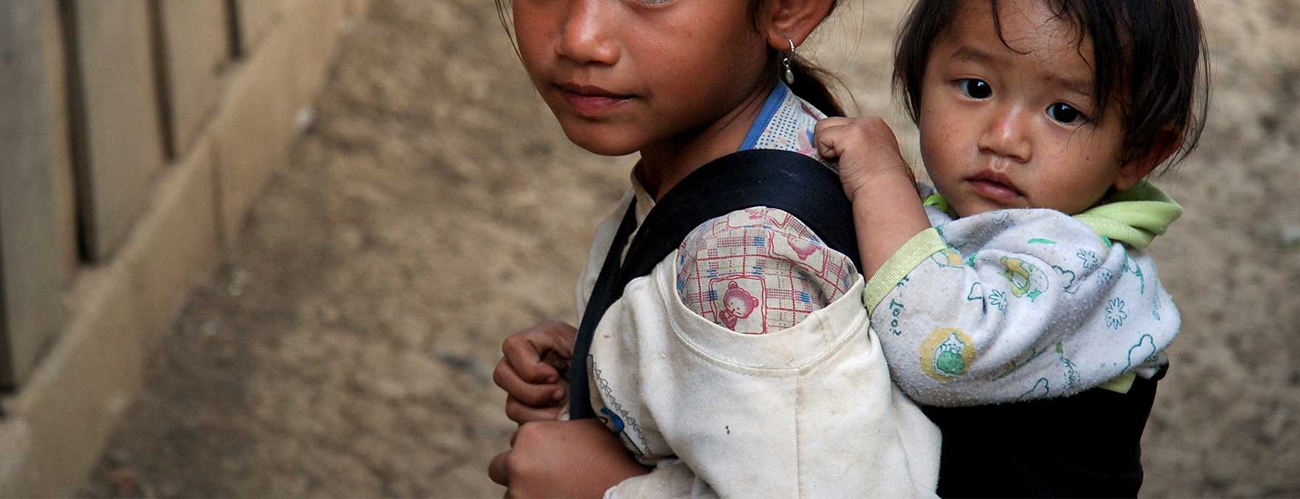
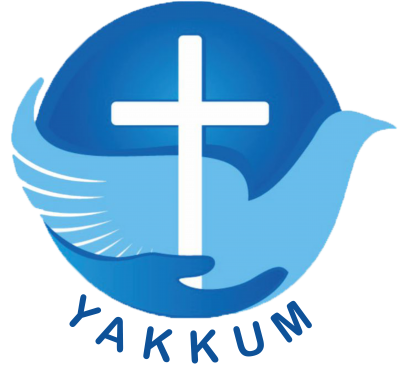
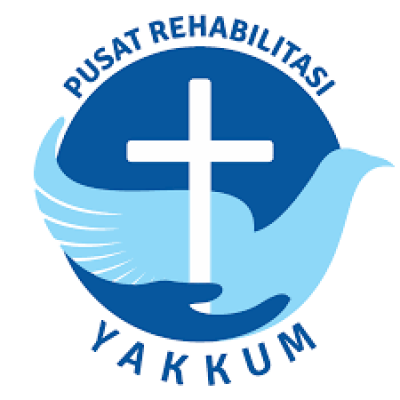

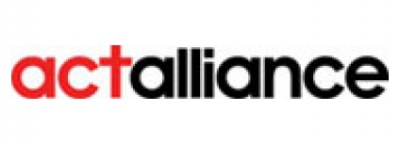
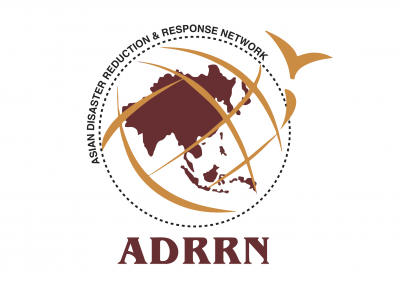
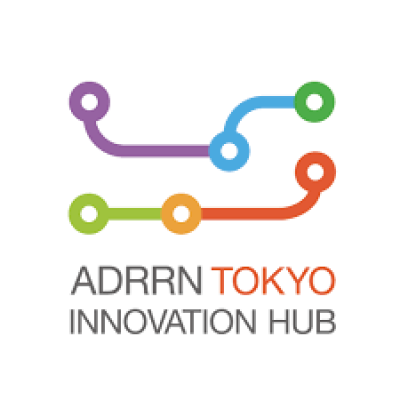




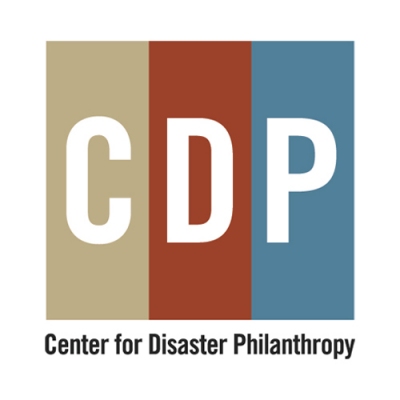
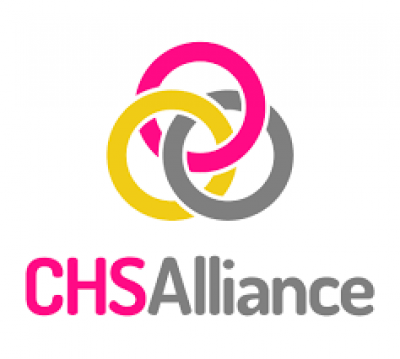

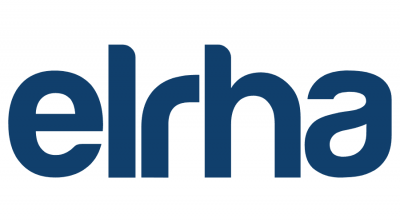
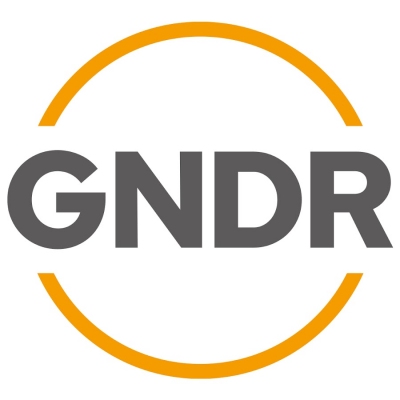
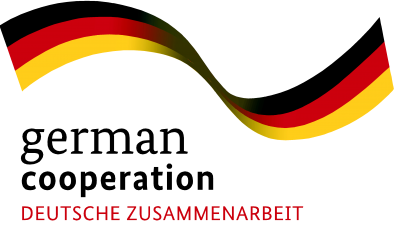
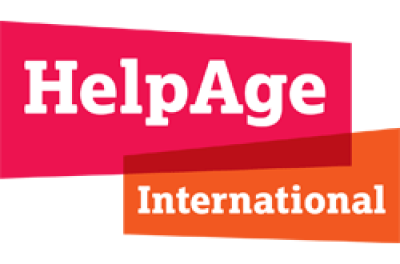






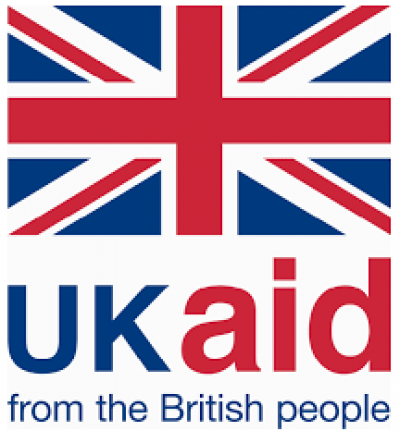

Social Media
@yakkumemergency
yakkumemergency